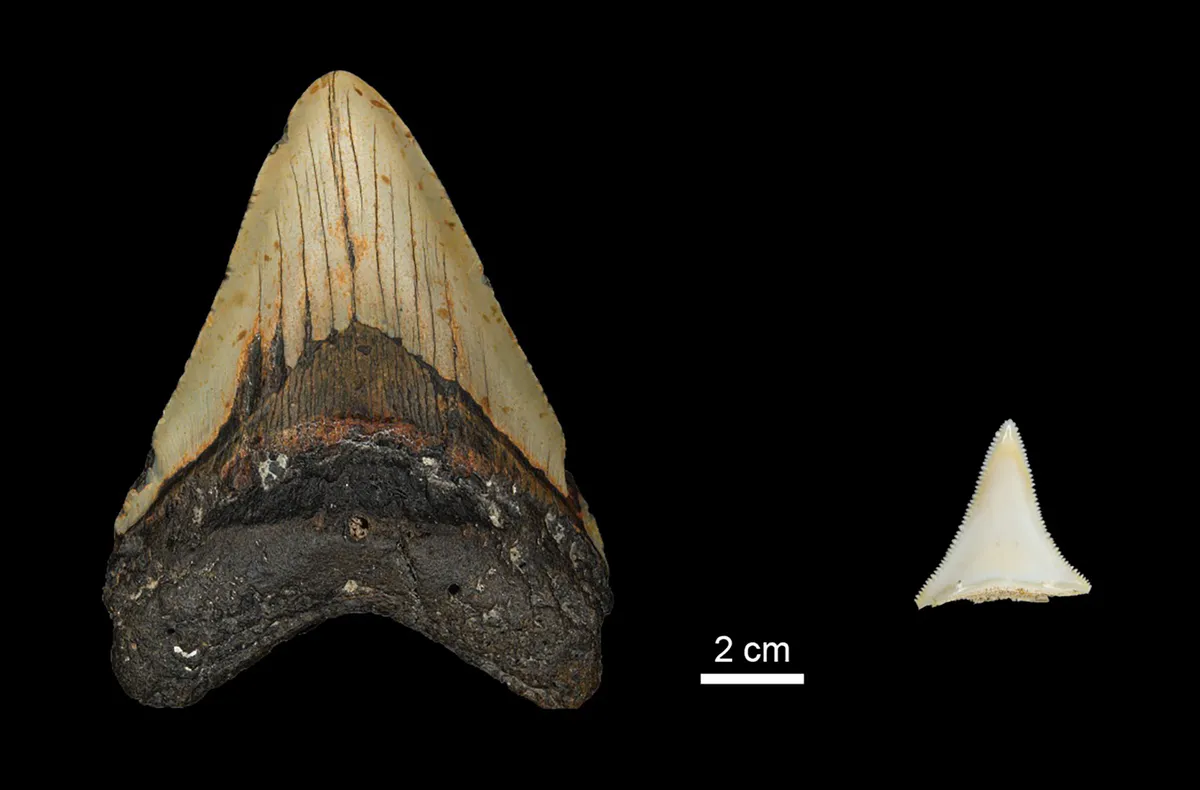When it comes to apex predators living in the ocean, the megalodon, a prehistoric colossus that grew up to 20 metres in length, is surely one of the most impressive.
But according to a new study analysing the teeth of these ancient predators, megalodons may have beenbeaten to the punch by the ancestors of today’s great whites, which at six metres in length were much smaller than the carnivorous behemoths.
The team made the discovery by analysing various zinc isotopes in the fossilised teeth of the prehistoric marine animals, dating back five to three million years ago in the Pliocene era.
They found signs of similar degrees of animal matter consumption in the teeth of the megalodons and great white ancestors, suggesting that both animals were competing for the same prey.

“Our results show, that both megalodon and its ancestor were indeed apex predators, feeding high up their respective food chains,” said co-author Prof Michael Griffiths, from William Paterson University, New Jersey.
“But what was truly remarkable is that zinc isotope values from Early Pliocene shark teeth from North Carolina, suggest largely overlapping trophic levels of early great white sharks with the much larger megalodon.”
The findings suggest that this new isotope method of determining prey consumption may also be applied to other species.
“Our research illustrates the feasibility of using zinc isotopes to investigate the diet and trophic ecology of extinct animals over millions of years,” said co-author Jeremy McCormack, a postdoctoral researcher at the Max Planck Institute.
“The method can also be applied to other groups of fossil animals including our own ancestors.”
Read more about sharks